Mariam Awuni, Form Ghana's Human Resources Manager, writes:
Form Ghana recently held successful training programmes for the Berekum and Adumadan plantations Ladies' Club members, focusing on team building, communication, conflict resolution and achieving common goals.
The aim of the training, led by Joycelyn Adii, the Bono Regional Gender Director, was to equip the women of Form Ghana with essential skills to thrive in a male-dominated industry.
Madam Joycelyn emphasised the importance of women supporting one another to strengthen the team's overall productivity and contribute to the company's goals and their own livelihood activities. She highlighted the need for women to build themselves up, unite, and lift each other, noting that collective strength is vital in overcoming challenges in the forestry sector.
During the sessions, she underscored the role of effective communication in fostering trust and preventing misinformation. She encouraged participants to follow the company's established procedures for addressing concerns and grievances, ensuring clarity and accountability. Conflict, she explained, is a natural part of group dynamics. Still, how it is managed determines whether it strengthens or weakens the team. She urged the group to use Form Ghana's conflict resolution mechanisms to address issues constructively.
The facilitator also prompted discussions on how the ladies could work together toward a common goal. The participants recognised that resolving internal conflicts and embracing diversity were essential to achieving unity and progress.
Madam Joycelyn advised the club to align its constitution with the company's vision and mission, ensuring that its efforts contribute to retaining and encouraging more women in the workforce. The training ended on a high note, with participants thanking management for its support. They requested assistance in organising similar training and coaching sessions to encourage more women to join the club and work towards the company's long-term success as "Women of Form Ghana".
Visitors to Form Ghana’s harvesting operations are accustomed to hearing the unmistakable sound of chainsaw operators working in our teak plantations. They are in for a pleasant surprise when the harvesting team clad in highly visible safety gear and carrying their industrial chainsaws emerge from the forest at lunchtime.
Regina Gbedaa, Patience Oppong, and Helina Dansowaa are members of Form Ghana’s all-female chainsaw squad, working alongside their male colleagues.
At Form Ghana, equality and diversity are among our core values. We take pride in offering equal opportunities to our existing employees and local community members. One of these operators is a current casual employee who seized the chance to learn and excel in a new role. Another discovered the opportunity through a radio announcement, while the third heard about it at a local community information centre.
Our skills development provider, CMO, sent Allan Ogram, their chainsaw specialist and instructor, to train the women. They completed two weeks of intensive training in tree characteristics, felling, debranching and crosscutting and received a Certificate of Competence.
“I was impressed by their attitudes, strength and willingness to learn a skill traditionally reserved for men. They had no problems in handling the saws during a full day’s work”, says Allan. “Their achievement proves something I always emphasise in my training courses – the ability to safely and productively handle a chainsaw is all about using the appropriate technique for the tree and its location”.
The newly skilled operators say they accepted the challenge to be pioneers in a male-dominated profession because Form Ghana believed they would succeed.
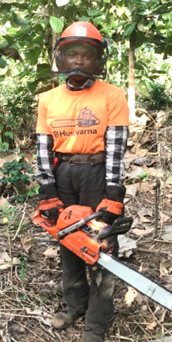
PATIENCE OPPONG
My name is Patience Oppong. I am a native of Berekum and a junior high school dropout.
I joined Form Ghana in November 2022 as a casual fire support worker. I volunteered to attend the chainsaw operator programme, and in May 2023, I was appointed as a permanent Chainsaw Operator.
I am proud to be an employee of Form Ghana because it has provided me with a job and the technical skills and abilities to operate a chainsaw.
By employing me, Form Ghana has helped me send my children to school and buy a plot of land and a sewing machine for my sister.
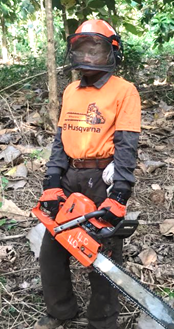
REGINA GBEDAA
My name is Regina Gbedaa, and I am a senior high school graduate. I heard on the radio that Form Ghana was looking for chain saw operators. My application was accepted, and I joined the company in May 2023.
I worked hard during the training programme and learnt how to operate the chainsaw and the importance of achieving my daily target.
Joining Form Ghana was my best decision because it has helped me rent accommodation and send my siblings to school.
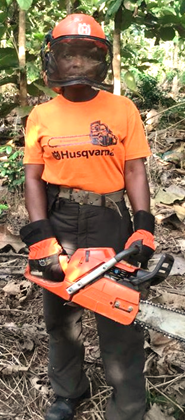
HELINA DANSOWAA
I am Helina Dansowaa, and I was born and raised in Berekum. After junior high school, I worked as a seamstress when I heard at the community information centre that Form Ghana was looking for women interested in learning how to use a chainsaw.
Form Ghana and Allan Ogram taught me various chainsaw operating techniques, like how to hold the chainsaw and cut a tree to fall in the right direction. I know how to debranch trees and crosscut logs to specified sizes.
I want to thank Form Ghana for employing me and creating opportunities for me and other community members.
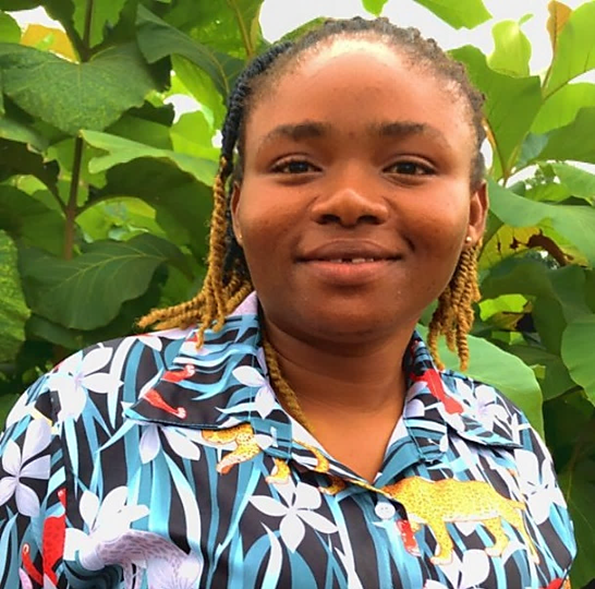
My name is Faustina Agyeiwaa. I am a graduate of KNUST and joined Form Ghana in June 2023 as a Management Trainee.
My experience has been worthwhile. Form Ghana is well organised and has an excellent record in social, environmental, and economic achievements. It is an honour to be part of a company involved in reforestation and restoration. The structured Management Trainee Programme has given me a great opportunity to learn on the job and build my communication, analytical thinking, and problem-solving skills. Also, I have gained practical knowledge of silviculture and harvesting and helped senior managers and officers in various plantation management activities.
I have grown personally and professionally and am confident that the practical knowledge and experiences gained so far will help me build a career at Form Ghana.
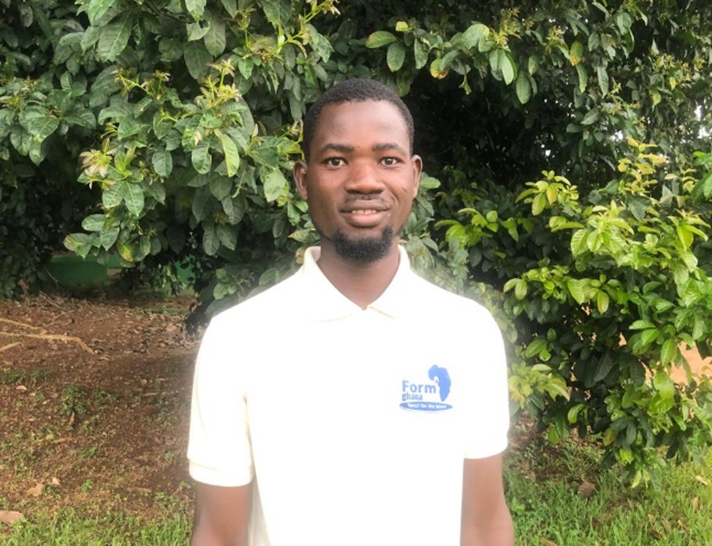
I am Adam Osman, a graduate of the UDS. Since joining Form Ghana in January 2023 as a Management Trainee, I have received training and worked in many departments.
I have assisted Plantation Supervisors and Technical Officers in all their duties. They and the managers taught me how to plan, organise teams and monitor plantation work. They encouraged me to identify trends, evaluate outputs and make improvement recommendations.
Working with Form Ghana has been an exciting and wonderful experience. The MTP has helped me understand the theories I learned in class by giving me contextual knowledge, practical skills and experience in plantation and harvesting management operations.
I see this as a challenge to keep working hard, advance professionally, and improve my interpersonal relationships, communication, and problem-solving skills. I appreciate Form Ghana for giving me this opportunity since it will significantly increase my long-term goal of becoming a forest or natural resources manager.
There's no better way to secure the future of a country and company than by attracting, nurturing and developing young and dynamic leaders. In this newsletter, we introduce Form Ghana’s Management Trainee Programme (MTP), which develops the company’s leaders to ensure our continuity and sustainability.
The MTP is sought-after by Ghanaian graduates wanting to work for a forward-thinking company in the highly rewarding fields of environmental stewardship, community engagement, reforestation and growing local economies. At the same time, Form Ghana provides the tools and opportunities for career development and personal growth.
“Young talent brings fresh ideas and innovation, contributing to Form Ghana’s adaptability and growth. Recruiting and selecting young people ensures that there is a pool of future leaders well-prepared and aligned with the company's values and objectives”, explains Mariam Awuni, Form Ghana’s Human Resources Manager.
“The MTP was introduced in 2010 to minimise disruptions in our operations by encouraging experienced supervisors and managers to pass on their knowledge, expertise, and institutional memory while remaining open to new ideas”, she says.
The Form Ghana MTP is an immersive experience that takes candidates through all levels of the organisation. Mariam explains that young graduates rotate through various departments and work side-by-side with teams in the nurseries and infield, supervisors, officers, foresters, and managers.

“This hands-on exposure gives potential leaders a rounded understanding of Form Ghana’s operations and what it means to be a sustainable forestry company. They are encouraged to take ownership of projects to develop their soft skills and understand leadership responsibilities. This helps them gain confidence and develop their decision-making skills”, Mariam explains.
The MTP period is six continuous months. When they have completed the programme, trainees can leave or join Form Ghana. They can build a career in the company by starting as a Management Assistant and rising through the ranks as Supervisors, Officers, Foresters, and Managers when there is a vacancy.
“While we are proud of the graduates who choose to continue their journey with Form Ghana, we understand that career paths are diverse. Many of our former students have ventured into other professional avenues, and we couldn't be happier with the feedback we receive. They tell us the experience and learnings gained during the MTP has given them the tools to secure other jobs and build successful careers”.
Mariam says, “The impact of the programme is far-reaching. Most of our management team are graduates who are contributing to Form Ghana’s sustainability and thereby playing a significant role in shaping the future of Ghana”.
"The safety, health and well-being of Form Ghana's employees and contractors are not negotiable," says Willem Fourie, the CEO. The company's Health and Safety Policy forms a significant component of employee induction, and safe work practices are underscored by Toolbox Talks every morning and a stringent skills training and refresher course system.
Form Ghana's management team proactively identifies health risks beyond on-the-job safety that could harm the company's operations and cause reputational harm to their employees and their families.
Food hygiene interventions
Food and water contamination could make employees ill, causing absenteeism, and, in extreme cases, could be fatal. Recently, the District Environmental Health Officers and Form Ghana's health team jointly inspected the food preparation premises of food vendors who sell and handle food on-site.
Form Ghana's Occupational Health and Safety Officer, Site Nurses and Health and Safety Assistants educated the food handlers and sellers about hygiene, safety and ways to control and prevent food contamination and cross infections.
Personal hygiene programme
As part of the preventative measures, the chemical sprayers, manual weeding teams, monitoring teams, engineering workshop staff, stores, janitors, and management staff were trained on personal hygiene infield and at the mustering site. This education aimed to address ill-health cases linked to hygiene as a risk factor.
Hand tools safety
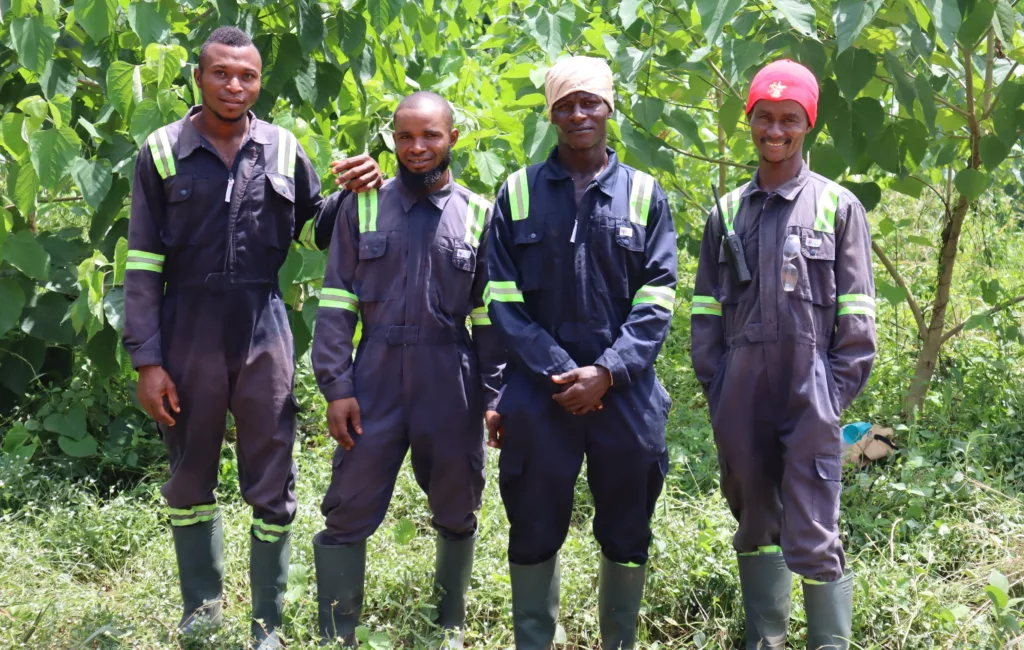
The weeding team was trained to maintain their hand tools and ergonomics and safe techniques for slashing saplings/ shrubs and other problematic weeds.
Vehicle maintenance training
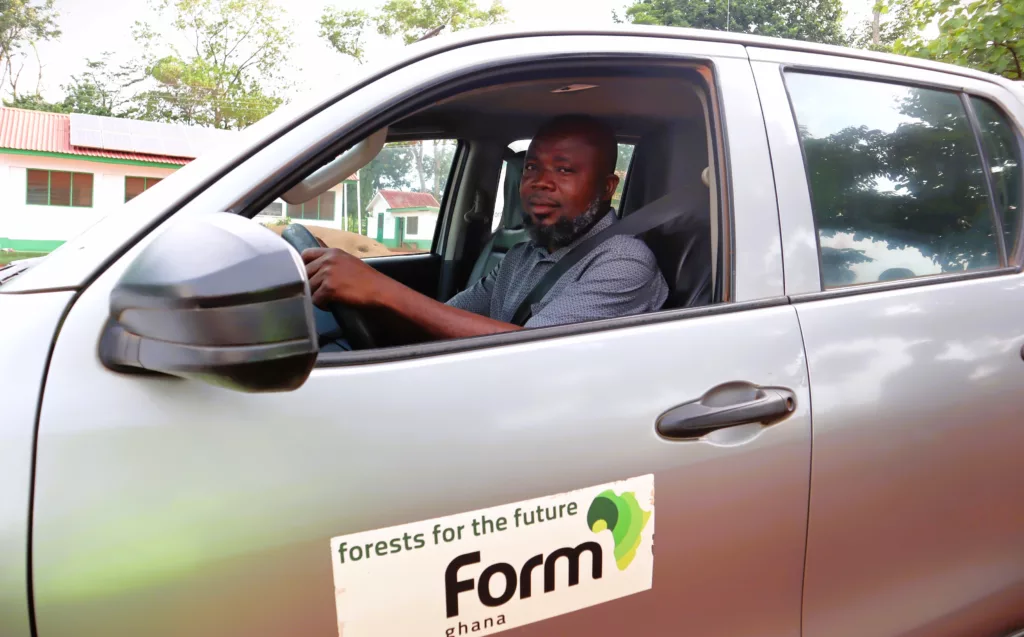
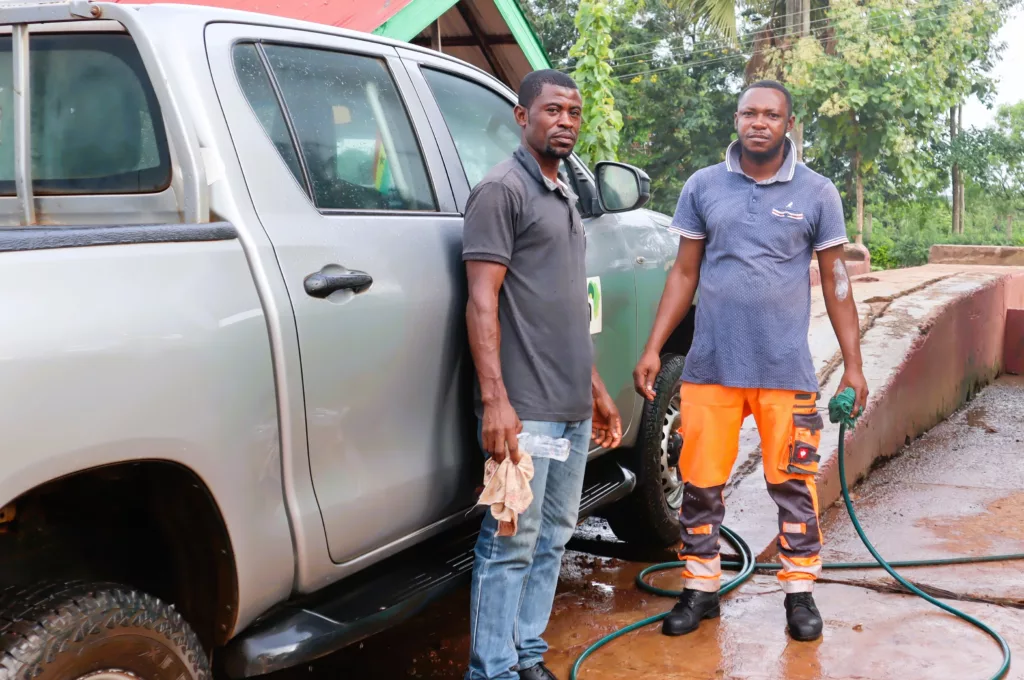
Form Ghana's drivers are exposed to extreme hazards in a country with poorly maintained roads, dangerous road users, cyclists, motorcycles, animals and pedestrians. They regularly attend training in risk assessment and defensive driving techniques in various conditions. The drivers were recently trained on the importance of tyre inspections and safety when changing a tyre.
Form Ghana recently appointed two new professional Site Nurses to assist in educating employees about health and safety at work and home, safe work practices, HIV/Aids, malaria, and conduct first aid training. They are both registered with the Ghana Registered Nurses and Midwives Association.
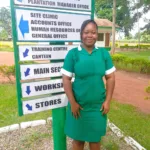
Freda O Kwarteng is the Site Nurse at Akumadan. She holds a Diploma in General Nursing and gained extensive experience at St John of God Hospital in Bono Region.
"I am impressed by Form Ghana's attention to their employee’s health and well-being. Employees feel happy coming to the clinic", Freda remarks.
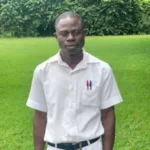
Edward A. Atia is based at Berekum. He has a first-class BSc degree in nursing and is a registered nursing practitioner. He brings experience from the Korle-Bu Teaching Hospital, Pantang Psychiatric Hospital in Greater Accra, and the Wa Municipal Hospital in the Upper-West Region.
"I delight in educating employees on health issues, for example, food and personal hygiene as preventative means of controlling ill-health", Edward says.
Form Ghana is responsible to its stakeholders to identify and solve all complaints and grievances appropriately, timely and fairly. Where possible, we focus on dialogue to address and resolve grievances.
The comprehensive Complaint Response Mechanism (CRM) demonstrates that the company has taken the appropriate steps to address the issue, protect the complainant where possible, try to find a win-win solution, and has been fair, impartial and ethically professional in our approach.
Internal Complaints
Form Ghana implements a comprehensive set of employment and employee-related policies, procedures and Safe Operating Practices (SOPs) that protect their and the company's rights regarding work, working conditions and relationships with colleagues. Broadly, the CRM:
External Complaints
External complaints can have a variety of origins. Complainants can roughly be categorised as follows: intercropping farmers, members of surrounding communities, pastoralists residing near the project area, Government bodies (local, regional and national), service providers, NGOs, and others.
Stakeholders can express their complaints at stakeholder meetings, community meetings, intercropper/outgrower meetings, focus group discussions and one-on-one sessions. If the complaint is not solved in the forum, the complaint is escalated to the Environment and Social (E&S) Manager, who implements the formal CRM procedure.
There are several methods for external stakeholders to inform Form Ghana about their dissatisfaction. It includes:
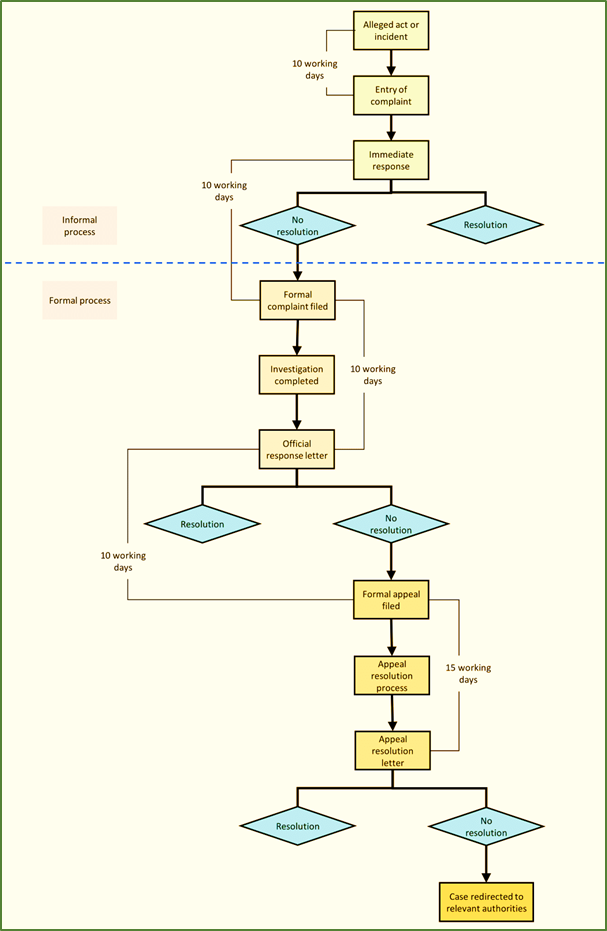
Businesses do not operate in isolation. They exist within a complex web of relationships and interactions with various stakeholders, each with a personal stake in the company's activities. For Form Ghana, stakeholder engagement is not just a corporate responsibility but a fundamental aspect of our approach to responsible and sustainable forestry management.
Our stakeholders are as diverse as the ecosystems we manage. They encompass government departments, our Board, private investors and donors, staff, traditional landowners, fringe communities, service providers, labour unions, farmers, intercroppers, certification organisations and environmental NGOs. Each group plays a unique role in shaping our operations and, consequently, our long-term success.
However, the communities and landowners surrounding our forests hold a special place in our stakeholder engagement strategy. They are on the front lines, experiencing the impacts of our activities daily.
Open communication
One of the critical pillars of our stakeholder engagement approach is establishing open and transparent lines of communication. To achieve this, we follow accepted protocols to organise regular stakeholder meetings that are carefully planned and communicated well in advance. These meetings are held at churches and town halls accessible to everyone. Transport is often arranged to assist groups to participate.
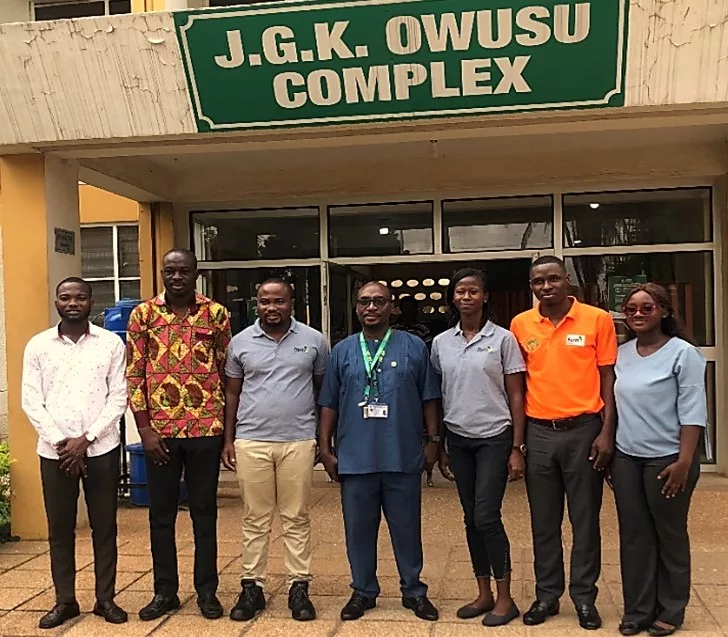
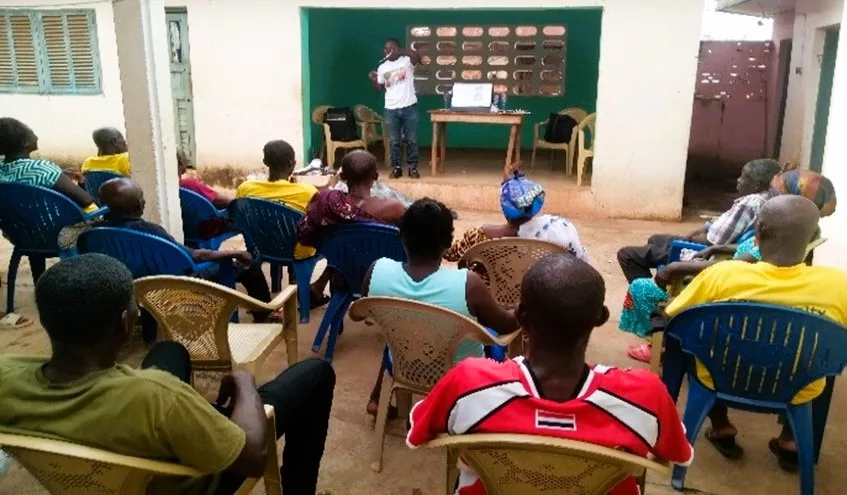
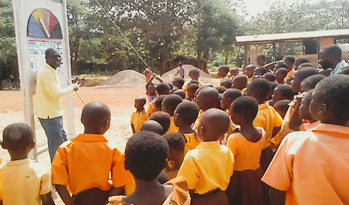
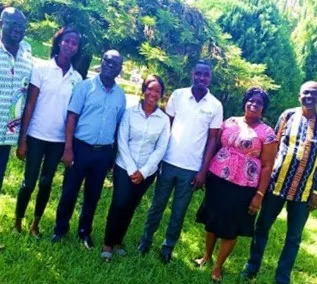
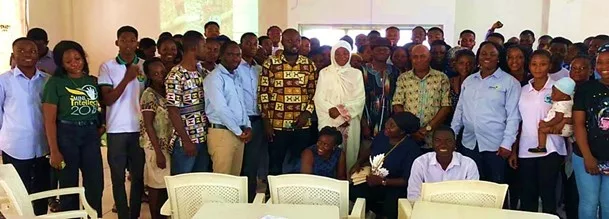
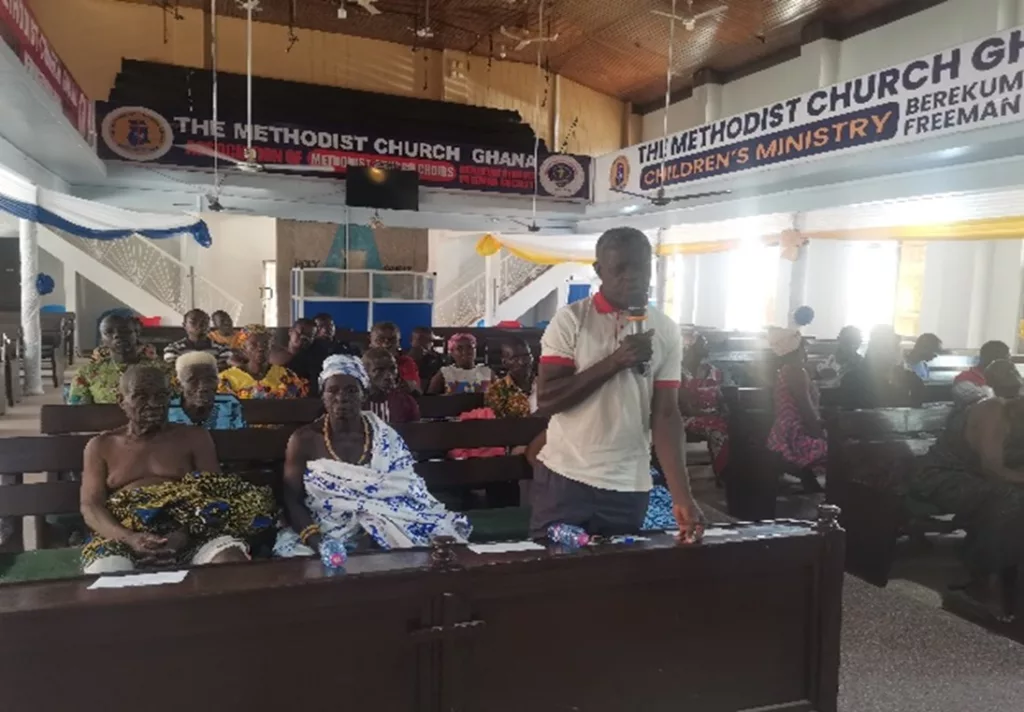
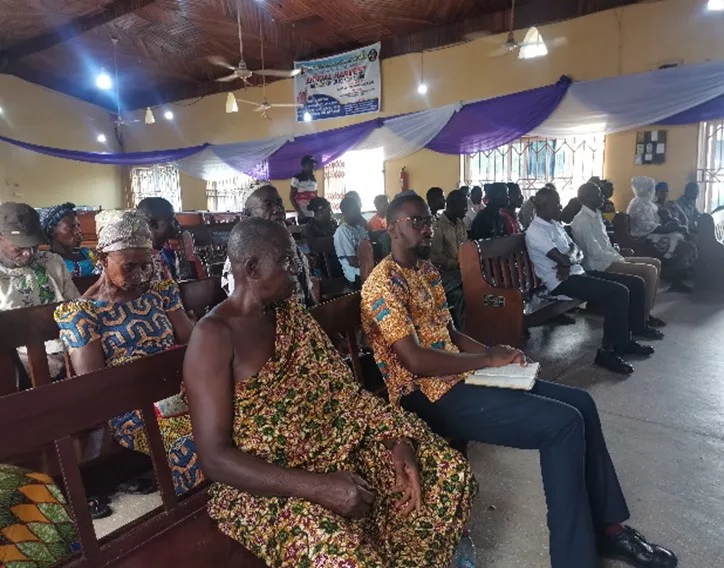
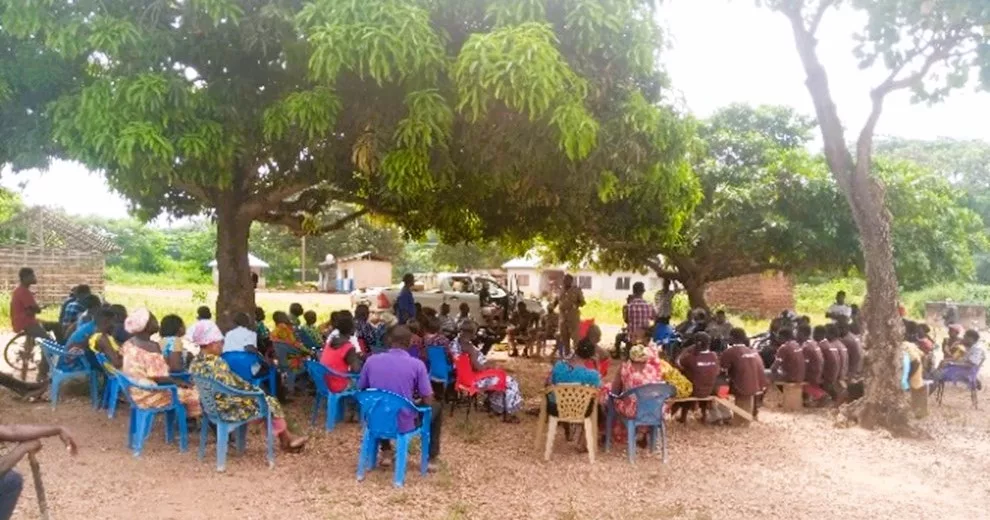
The agenda includes feedback on matters arising from the previous meeting and new topics that may have emerged since the last gathering. We encourage stakeholders to voice their concerns about issues within our scope, ask questions, and share their views on our operations. We also use the opportunity to identify community projects for which funds are available.
These discussions are essential for building mutual trust and ensuring we remain accountable to our stakeholders. The minutes of these meetings are available at our offices, ensuring transparency and accessibility for all interested parties.
Complaints mechanism
We understand that complaints and grievances may arise from time to time. Our stakeholder engagements encourage individuals or groups to express their grievances and complaints during our meetings. If, for any reason, a resolution cannot be reached during the meeting, we request that these concerns be put in writing. It formalises the complaint and activates Form Ghana's formal Complaint Response Mechanism (CRM), ensuring a structured and timely resolution process.
Sensitisation sessions
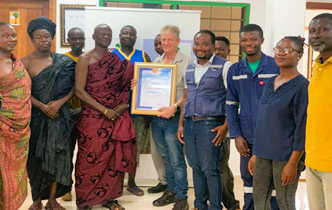
In addition to our regular stakeholder meetings, we recognise the importance of keeping our stakeholders well-informed about our objectives, projects, and operations.
To achieve this, Form Ghana conducts regular sensitisation meetings. "Sensitisation" means making people "sensitive" about an issue. This is the core of our awareness-raising process.
These sessions educate our stakeholders about our activities and provide a platform for addressing their expectations and concerns. Examples of the topics covered include fire prevention, illegal activities, health and safety, best agronomic practices, work opportunities and offering a platform for suggestions and registering complaints.
Beyond corporate responsibility
Stakeholder engagement is not just a corporate responsibility; it is a fundamental aspect of our approach to sustainable forestry management and creates a stronger, more resilient foundation for our operations.
As we move forward, we remain dedicated to strengthening our stakeholder relationships and ensuring that our forestry practices benefit the environment and the communities we serve.
Every year, Form Ghana recruits and selects one or more groups of young graduates to participate in its Management Training Programme.
The trainees are monitored and mentored throughout the period and exit the programme with experience working in and managing teams. They also understand the contribution of sustainable forest management in mitigating climate change.
TRAINEE FEEDBACK
By: Agyewaa Faustina, Gideon Appiah, Adam Osman, and Thomas Baidoo
"We eagerly joined Form Ghana in 2023 as Management Trainees. Embracing this great opportunity, we were introduced to a structured trainee programme that provided us with valuable experience in communication and problem-solving skills.
"In addition to practical knowledge gained in various silviculture and harvesting operations, we assisted senior managers in carrying out plantation management activities.


"Our journey as Management Trainees at Form Ghana has been extraordinary. We have grown personally and professionally, acquiring vital skills, embracing challenges, and contributing to the company’s success.
We are confident that the practical knowledge and experience gained during our trainee programme will contribute significantly to our effectiveness as employees in Form Ghana. Thank you, and long live Form Ghana!"
Samuel (Sammy) Ampofo Owusu has recently been appointed Executive Assistant to Form Ghana's CEO. As an integral part of the leadership team, the Executive Assistant plays a vital role in supporting the CEO and ensuring the smooth functioning of the organisation.
Sammy has a BSc in Accounting and an MBA in Finance. He joined Form Ghana in November 2012 after completing his national service. "I chose Form Ghana because I wanted to contribute to an exciting, forward-thinking and fast-moving company in an important industry", he says.
"I am a meticulous accountant versed in audit coordination and execution. Over the years, Form Ghana has allowed me to adapt to various job roles", Sammy explains. He says the experiences have developed his abilities to multitask, think critically, meet strict timelines and provide accurate reporting.
"As the Executive Assistant, I will focus on corporate governance, ensuring strict compliance with applicable laws and meeting all investor requirements. My previous experience in the company has deepened my understanding of working with external stakeholders.
"It has also deepened my communication skills with the various departments within the company and enhanced my time management skills, which will greatly impact my success in this new role".
Sammy believes Form Ghana's focus on good corporate governance will allow it to take advantage of new opportunities that arise.
"Form Ghana's operations are increasingly moving into the digital space where banking, harvesting and operations are managed electronically or by machines. This means we must ensure our staff are upskilled and digitally dexterous".
He advises aspiring professionals seeking senior management positions to be focused, dedicated, committed, involved, consistent and hardworking.
Do you want to join our team?